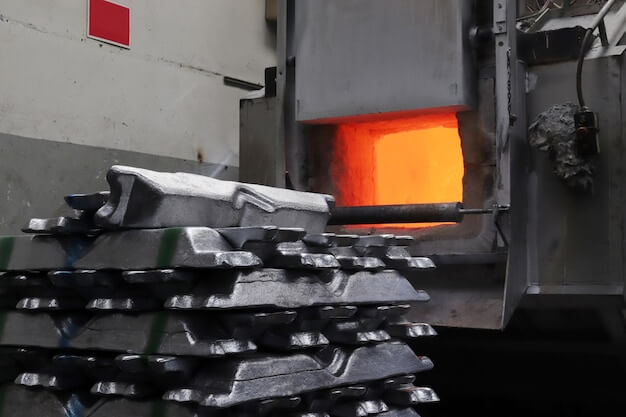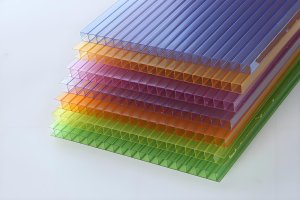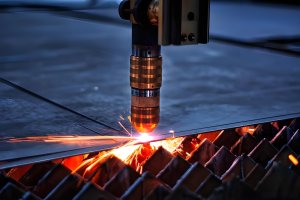Introduction to Super Duplex Stainless Steel and CNC Machining
Super duplex stainless steel, a prominent material in the manufacturing industry, possesses an optimized balance of properties that make it desirable for numerous demanding applications. Characterised by its dual phase structure – containing roughly equal parts of ferrite and austenite – super duplex stainless steels exhibit exceptional strength and corrosion resistance. Such characteristics make this high-performance alloy suitable for harsh conditions typically found in industries like oil and gas, petrochemicals, or marine environments.
In conjunction with thoughtfully selected materials such as super duplex, Computer Numerical Control (CNC) machining plays an integral role in modern production pipelines. As a computer-aided manufacturing process, CNC machining leverages digital instructions to direct machine tools including mills, lathes, grinders, and routers. This advanced technology offers remarkable precision, automation, and efficiency across a wide array of tasks:
- Fabrication of complex shapes which would be nearly impossible to achieve manually
- Creation of intricate details with extremely tight tolerances
- Straightforward reproduction of identical parts, contributing to scalability,
The intersection of super duplex stainless steel’s robustness and CNC machining’s technical prowess holds substantial potential for producing high-corrosion resistance parts.
Detailed Application of Super Duplex Stainless Steel in CNC Machining
Super duplex stainless steel is highly suitable for CNC machining due to its exceptional corrosion resistance, high strength, and excellent mechanical properties. It finds extensive applications in industries such as automotive, aerospace, marine, and oil & gas, where parts require superior resistance to harsh environments and corrosive substances.
Advantages of Using Super Duplex Stainless Steel for High-Corrosion Resistance Parts
The significance of high-corrosion resistance in particular components cannot be understated. Industries such as marine, mining, oil and gas frequently expose their machinery to harsh environments and corrosive substances. This necessitates materials with superior corrosion resistance to elongate the lifespan of these parts, decreasing replacement costs over time.
In this context, super duplex stainless steel offers unparalleled benefits. Its unique chemical composition includes elements like chromium, molybdenum and nitrogen which not only enhance its strength but also significantly augment its ability to resist pitting and crevice corrosion. Moreover, it demonstrates exceptional resilience against stress corrosion cracking – a prevalent problem often found in lower-grade metals exposed to significant temperature fluctuations or extreme pressures.
Comparing Super Duplex Stainless Steel to Alternative Materials in CNC Machining
In the realm of CNC machining, several materials may serve as potential alternatives to Super Duplex Stainless Steel (SDSS). Among these are standard duplex stainless steel, austenitic stainless steel, and carbon steels. Each material has its own unique properties when exposed to corrosive elements.
- Duplex Stainless Steel, although similar to SDSS, lacks comparably high resistance to corrosion and might not maintain stability under extreme temperatures due to a lower pitting resistance equivalent number (PREN).
- Austenitic Stainless Steel, common for general purpose parts, is relatively weaker against stress corrosion cracking compared to SDSS, thereby making it less suitable for applications that demand robust mechanical strength and durability.
- Carbon Steels are economically advantageous but have considerably poor performance against corrosion, restricting their use in harsh environments where corrosion resistance is critical.
In comparison, the enhanced composition of Super Duplex Stainless Steel imparts superior mechanical properties, resulting in increased hardness, stronger resistance to tensile stress, better weldability, eminent machinability, efficient heat transfer capability, and most importantly, exceptional resilience against corrosion.
Understanding the Impact: Super Duplex Stainless Steel’s Corrosion Resistance
The profound corrosion resistance of super duplex stainless steel contributes significantly to its longevity and effectiveness in parts manufacturing. This enhanced durability, essentially emanating from a high molybdenum and nitrogen content as well as a balanced blend of chromium and nickel alloys, ensures components can withstand extreme working conditions with higher levels of chemical exposure or underwater depths for more extended periods.
- Beyond just the technical advantages, this high-corrosion resistance has economically beneficial implications too. Parts made from super duplex stainless steel necessitate less frequent replacements owing to their long life-cycle, thereby leading to considerable cost savings over time.
- Maintenance requirements are also notably inferior compared to parts manufactured from other materials, thus resulting in further financial benefits and operational efficiency.
For instance, offshore oil rigs utilize super duplex stainless steel due to its extraordinary capacity to resist saltwater corrosion, maintaining structural integrity while reducing maintenance costs and replacement frequency. It is clear that the use of super duplex stainless steel in CNC machining processes presents numerous advantages, particularly considering high-corrosion resistance component applications.
Real World Applications of Super Duplex Stainless Steel in Various Industries
The super duplex stainless steel when combined with CNC machining finds a wide range of applications in various industries, essentially due to its superior corrosion resistance. For instance, it plays an indispensable role in the oil and gas industry for manufacturing components that are exposed to harsh operational environments like subsea drilling systems.
In contrast, traditional materials such as carbon steel have been found to fail under similar conditions due their inadequate corrosion resistance. Similarly, the petrochemical industry significantly benefits from this combination in fabricating heat exchangers subject to high temperatures and corrosive chemicals.
- A failure instance is seen in marine-grade Aluminum alloys used for piping systems which fall prey to galvanic corrosion quickly.
- Another example is in Desalination plants where chloride induced corrosion becomes a grave issue in common metals. Choosing super duplex stainless steel overcomes these challenges.
The pairing of superior material characteristics of the super duplex stainless steel with the precision and efficiency of CNC machining thus offers tangible solutions for demanding industrial scenarios.
Conclusion
Super duplex stainless steel has been effectively utilized in CNC machining due to its remarkable properties that make it suitable for high-corrosion resistance parts. The benefits of using this material include enhanced durability, reduced maintenance costs, and increased lifespan of the machined parts. Moreover, super duplex stainless steel is known for its excellent strength and superior corrosion resistance which makes it an optimal choice under extreme conditions such as those with high temperature and strong corrosive environments.
In the field of manufacturing, adopting the use of robust materials like super duplex stainless steel offers significant value. It allows manufacturers to deliver reliable products that meet emerging industry standards and customer demands. Although the cost may be higher compared to other common materials, the beneficial return on investment through frequent replacements reduction outweighs the initial expense. In conclusion, utilizing super duplex stainless steel in CNC machining is a strategic move that promises long-term benefits for both manufacturers and end-users alike.
Other Articles You Might Enjoy
- Types of Stainless Steel and Stainless Steel Grades
Stainless steel, renowned for its corrosion resistance, is a vital material in various industries, from construction to culinary tools. This article delves into the types of stainless steel and their…
- Alloy steel vs stainless steel
Introduction to Alloy Steel and Stainless Steel An alloy is a combination of metals or a metal mixed with one or more elements, engineered to enhance material properties such as…
- Alloy steel vs stainless steel
Introduction to Alloy and Stainless Steels Alloys are a blend of metals where the main component is enhanced by additional elements to improve its properties. The distinction between alloy steel…






